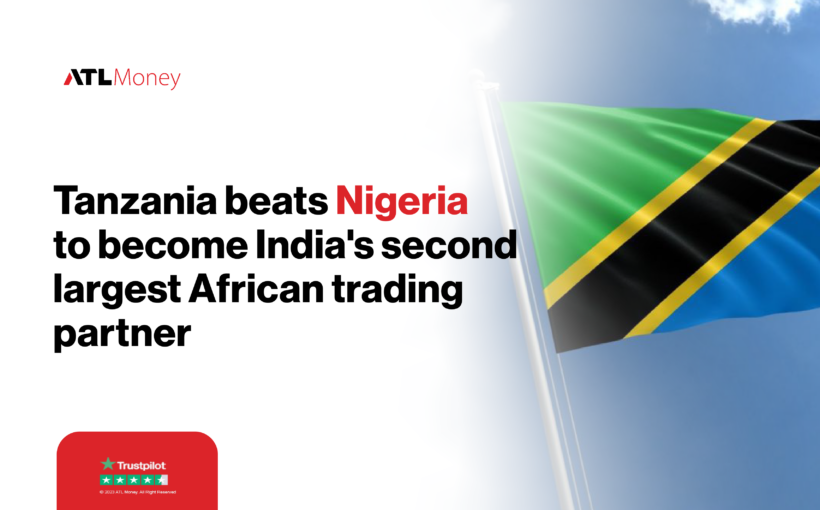There’s been a significant shift in the African continent’s trade dynamics. Tanzania has overtaken Nigeria to become India’s second-largest African trading partner. This change marks a significant moment in the trade relations between India and Africa. Thereby reflecting Tanzania’s growing economic presence and strategic trade engagements with India.
Our sources confirm that Tanzania’s trade with India has experienced significant growth, with a 22% increase in the previous fiscal year, resulting in a bilateral trade value of $7.9 billion as of May 27, 2024. This growth has allowed Tanzania to replace Nigeria as India’s second-largest African trading partner.
Tanzania’s Rise in Trade with India
Tanzania’s ascension in rankings can be attributed to a large increase in bilateral trade activities and a diversified trade portfolio. According to recent trade data, the value of trade between India and Tanzania has surged. This in turn positions Tanzania just behind South Africa, which remains India’s largest trading partner in Africa.
Key Trade Statistics
– Bilateral Trade Volume: In the last fiscal year, the bilateral trade volume between India and Tanzania reached approximately $3 billion. This is a substantial increase from previous years.
– Export and Import Dynamics: India’s exports to Tanzania include pharmaceuticals, machinery, and textiles. Meanwhile, Tanzania’s exports to India primarily consist of gold, cashew nuts, and other agricultural products.
– Trade Growth Rate: The trade growth rate between the two nations has been quite impressive. With an annual growth rate exceeding 20%, driven by increased demand for Tanzanian commodities and Indian manufactured goods.

Strategic Trade Agreements
Several strategic trade agreements and initiatives have fueled this growth:
- Economic Cooperation Agreements: In addition to enhancing economic cooperation, India and Tanzania have signed agreements aimed at easing trade barriers and attracting investment.
- Agricultural and Mining Sectors: Tanzania’s rich natural resources and agricultural potential have attracted significant interest from Indian businesses. This has in turn led to increased imports of Tanzanian goods.
- Pharmaceutical Exports: India’s role as a major supplier of affordable pharmaceuticals to Tanzania has not only boosted trade but also contributed significantly to meeting healthcare demands in the region
Nigeria’s Position
Although Nigeria remains a significant trading partner for India, it has faced obstacles due to economic and logistical challenges:
– Oil Trade Fluctuations: Nigeria’s trade with India has historically been dominated by crude oil exports. These recent fluctuations in global oil prices and production levels have impacted trade volumes.
– Diversification Efforts: Nigeria is working towards diversifying its economy and reducing its dependence on oil. However, this transition has influenced India’s trade dynamics.
Impact on Bilateral Relations
The shift in trade rankings is likely to influence bilateral relations between India, Tanzania, and Nigeria:
– Enhanced Diplomatic Engagement: India and Tanzania have been working closely on several development projects. As a result, their bilateral trade has increased significantly in recent years.
– Investment Opportunities: The growth in trade is expected to pave the way for increased investment in sectors like infrastructure, technology, and renewable energy.
– Economic Growth: The anticipated uptick in trade is expected to drive Tanzania’s economic growth, leading to job creation and promoting sustainable development.
Conclusion
Tanzania’s rise as India’s second-largest African trading partner marks a significant development in the landscape of India-Africa trade relations. This achievement highlights Tanzania’s economic potential and the mutually beneficial nature of its trade relationship with India.
As both nations continue to explore new trade and investment opportunities, the future looks promising for further economic collaboration and growth.
